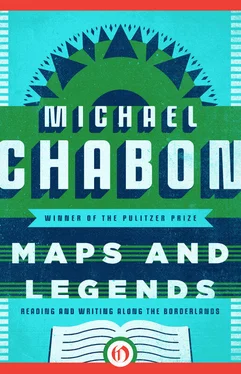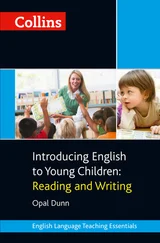But it’s not the goal of the journey, the movement toward healing, however illusory, that marks The Road as epic adventure: rather it’s the passage of its heroes through Hell. In Walter M. Miller Jr.’s introduction to Beyond Armageddon, an anthology of post-apocalypse short stories, the late author of the seminal after-the-Bomb novel A Canticle for Leibowitz (set in McCarthy’s Southwest) suggests that what most characterizes the form is not the setting or action — the scarred landscape, the savage contending tribes, the mutations, the deprivations, the desolation and death — but rather the epic persistence with which its protagonists are haunted by the ghosts of the dead, by the vanished. The world post-apocalypse is not Waterworld; it’s the Underworld. In his stories, his memories, and above all in his dreams, the father in The Road is visited as poignantly and dreadfully as Odysseus or Aeneas by ghosts, by the gibbering shades of the former world that populate the gray, sunless hell he and his son are daily obliged to harrow.
Indeed the novel itself describes a course that seems to carry it into the ghost world of McCarthy’s early novels and early life, abandoning the American Southwest, where the author has lived and has set his novels since the late seventies, for what seems to be Tennessee. At one point the travelers cross a bridge that may well be Knoxville’s Henley Street Bridge, a talismanic structure in Suttree; at another they seem to repeat the visit that Cornelius Suttree, the hero of the novel who leaves his rich family to become a river fisherman, pays to his ruined childhood home.
4.
The constant haunting of the protagonist by the ghosts of his own and our collective American past marks the point where the strands of epic begin to blend, as in Blood Meridian, with those of the other genre in which Cormac McCarthy has to be accounted a secret master, and the rightful heir (but oh how one hates to invoke yet another Great American Writer in discussing McCarthy, who at times has seemed to be in danger of disappearing in a heavy snowfall of comparisons to Melville, Faulkner, O’Connor, Hemingway) to the American Gothic tradition of Poe and Lovecraft, dark god of Providence, Rhode Island, where McCarthy was born. McCarthy’s early novels are not merely violent; they are almost gaudily so. They trade in necrophilia, perversion, and baby murder, and reading them one is struck repeatedly by the way he displays the bloody-minded glee of the horror writer, the gross-out artist, as when he goes to some length, in Suttree, to depict with atrocious vividness the slaughter of a hapless turtle to make soup; or, in this novel, notoriously, to treat readers to the sight of a baby roasting on a spit.
It is not enough for a horror writer to assert, with the mainstream of literature, that in the knowledge of death our life is vain show, and to set a skull as a memento mori in the corner of his canvas. No, the skull must have a starring role; it ought, as reported in one of the three epigraphs to Blood Meridian, to show “evidence of having been scalped.” Better still if we see the neck tendons severed, the vertebrae snapped, and the skin flensed with a hunting knife or gnawed off the bone by clacking insects.
Horror grows impatient, rhetorically, with the Stoic fatalism of Ecclesiastes. That we are all going to die, that death mocks and cancels every one of our acts and attainments and every moment of our life histories, this knowledge is to storytelling what rust is to oxidation; the writer of horror holds with those who favor fire. The horror writer is not content to report on death as the universal system of human weather; he or she chases tornadoes. Horror is Stoicism with a taste for spectacle.
The end of the world, therefore, has long been a temptation as appealing to writers of horror fiction as to those of science fiction. Poe sent a fiery comet to do the job in “The Conversation of Eiros and Charmion.” Richard Matheson, in his novel I Am Legend, sent a bacterial plague that induces vampirism, and in The Stand Matheson’s greatest disciple, Stephen King, wiped out humanity with the superflu known as Captain Trips. And I think ultimately it is as a lyrical epic of horror that The Road is best understood.
Horror fiction proceeds, generally, by extending metaphors, by figuring human fears of mortality, corruption, and the loss of self. The haunted house (or planet), the case of demonic possession, the nightmare journey to or through a charnel house, the transmutation of human flesh into something awful and foul, the exposed wolfishness of men, the ineradicable ancestral curse of homicidal depravity — all of them tropes to be encountered, in one form or another, in McCarthy’s work — trade on these deep-seated fears, these fundamental sources of panic, and seek to flay them, to lay them open, to drag them into the light.
What emerges most powerfully as one reads The Road is not a prognosticative or satirical warning about the future, or a timeless parable of a father’s devotion to his son, or yet another McCarthyesque examination of the violent underpinnings of all social intercourse and the indifference of the cosmic jaw to the bloody morsel of humanity. The Road is not a record of fatherly fidelity; it is a testament to the abyss of a parent’s greatest fears. The fear of leaving your child alone, of dying before your child has reached adulthood and learned to work the mechanisms and face the dangers of the world, or found a new partner to face them with. The fear of one day being obliged for your child’s own good, for his peace and comfort, to do violence to him or even end his life. And, above all, the fear of knowing — as every parent fears — that you have left your children a world more damaged, more poisoned, more base and violent and cheerless and toxic, more doomed, than the one you inherited. It is in the audacity and single-mindedness with which The Road extends the metaphor of a father’s guilt and heartbreak over abandoning his son to shift for himself in a ruined, friendless world that The Road finds its great power to move and horrify the reader.
I’LL JUST COME RIGHT out and say it: M. R. James’s ghost story “Oh, Whistle, and I’ll Come to You, My Lad” is one of the finest short stories ever written. The problematic term in that last sentence, of course, is not “finest” but “short stories.” It’s a mark of how radically we have changed our ideas of what a short story, and in particular a fine one, ought to be, that there should be something odd about ranking this masterpiece of the Other James in the same league with, say, “The Real Thing” or “Four Meetings.” The ghost story has been consigned to the ghetto of subgenre. Rare is the contemporary anthology of “best short stories of all time” that includes even a token example of the form.
Once it was not so. Once, you could argue, the ghost story was the genre itself. Balzac, Poe, de Maupassant, Kipling — most of the early inventors — wrote ghost stories as a matter of course, viewing them as a fundamental of the storyteller’s craft. Edith Wharton was an enthusiast and master of the “subgenre”; her ghost stories are the cream of her short fiction. And Henry James himself, of course, gave us the one ghost story whose status as literature is not open to debate: “The Turn of the Screw.” It was only the best of a good two dozen that he produced during the heyday of the form, in the latter half of the nineteenth century.
Maybe our taste has grown more refined, or our understanding of human psychology more subtle. Maybe we don’t really believe in ghosts anymore. Or maybe for the past sixty years or so we’ve simply been cheating ourselves, we lovers of the short story, out of one of the genre’s enduring pleasures.
Читать дальше
Конец ознакомительного отрывка
Купить книгу












